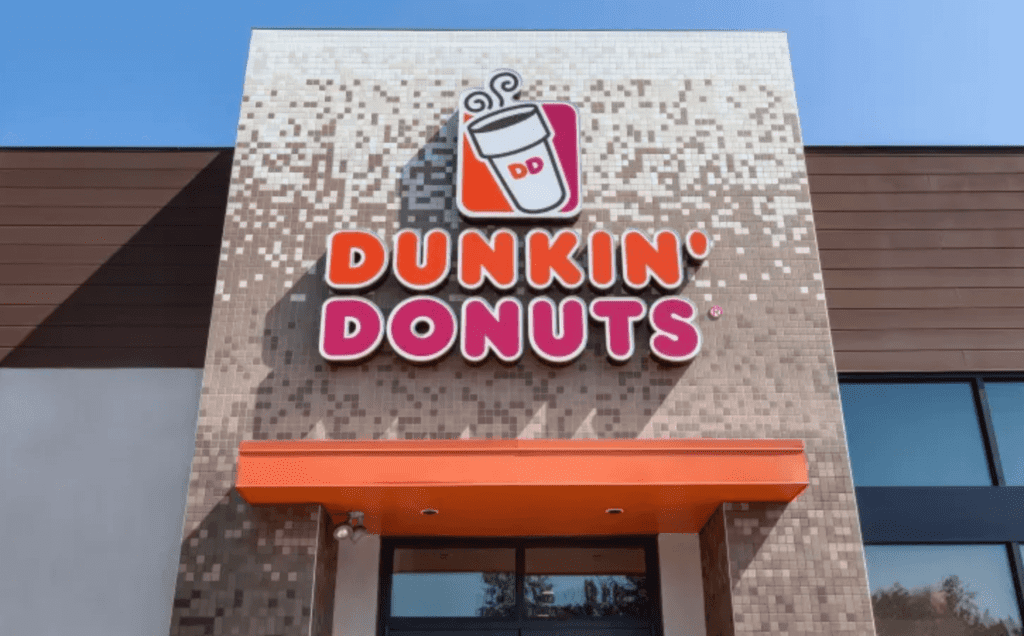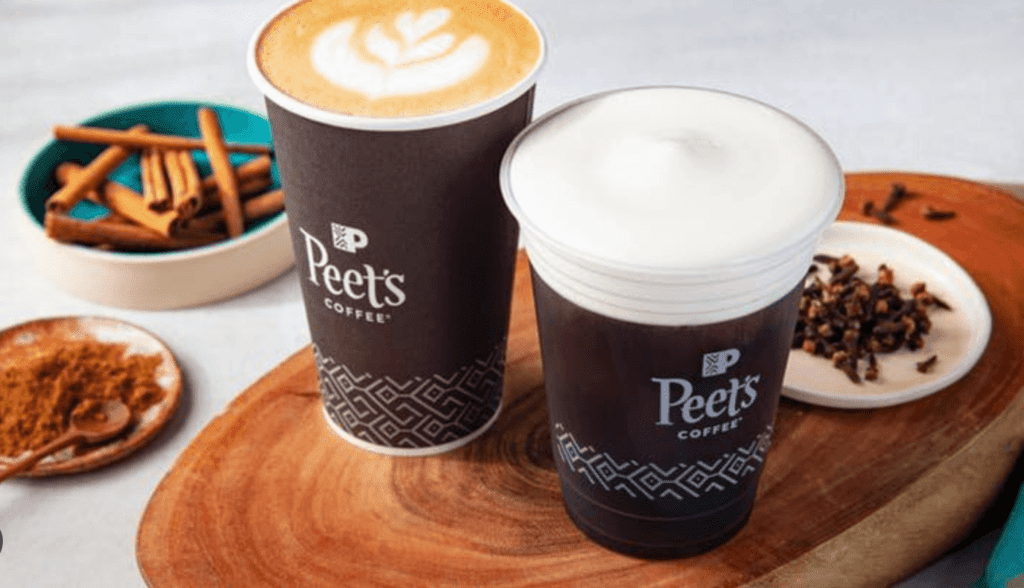In today’s bustling coffee industry, Starbucks enjoys the title of the most prominent coffee shop chain globally. But the world of coffee is much more complex than meets the eye, with numerous competitors vying for the top spot. In this blog post, we’ll delve into a comprehensive analysis of Starbucks’ competitors, exploring their strengths, strategies, and unique approaches.
Short Summary
The coffee industry is highly competitive, with Starbucks leading the US market at 39.3%.
Established companies such as Costa Coffee, Dunkin’ Donuts, McDonald’s and Peet’s Coffee are challenging Starbucks in various ways.
Emerging rivals like independent coffee shops and Café Coffee Day offer unique blends while packaged coffee sales battle for grocery shelves. Instant brands and subscription services provide alternative options to challenge Starbucks’ dominance.
The Coffee Landscape: Understanding the Industry
The coffee industry is a global giant, with millions of people around the world enjoying their daily cup of joe. Coffee shops have become a staple in many societies, providing a space for people to socialize, work, or simply enjoy a delicious coffee drink. In recent years, there has been an increase in the variety of coffee businesses, from small independent shops to international chains. Starbucks, the largest coffeehouse chain globally, dominates the market with a 39.3% share in the US retail coffee market. However, the company faces stiff competition from various established competitors, both large and small.
To stay ahead in this competitive landscape, Starbucks relies on its brand equity, global presence, and a devoted customer base. But what does the competition look like? In this Starbucks competitors analysis, we’ll explore the key players and their strategies in the coffee market.
Starbucks’ Position in the Market

Starbucks boasts a strong brand, loyal customers, a foothold in the premium coffee market, a wide retail presence, and a diverse product lineup – all contributing to its market dominance. The company operates a balanced revenue model, with 85% of its revenue generated from company-operated stores and the remaining 15% sourced from licensed stores, royalties, collaborative partnerships, packaged coffee, ready-to-drink beverages, and tea. This diversified approach to revenue generation allows Starbucks to maintain its position as a global coffee leader.
Starbucks aims to further solidify its market dominance, providing a more significant challenge for its competitors. However, the competition is fierce, with major players like Costa Coffee, Dunkin’ Donuts, McDonald’s and Peet’s Coffee continually innovating and strategizing to challenge the coffee giant.
Starbucks Key Metrics
Sales/Revenue
| 2018 | $24.7 Billion |
| 2019 | $26.5 Billion |
| 2020 | $23.5 Billion |
| 2021 | $29 Billion |
| 2022 | $32.2 Billion |
Net Income
| 2018 | $4.5 Billion |
| 2019 | $3.5 Billion |
| 2020 | $928 Million |
| 2021 | $4.1 Billion |
| 2022 | $3.29 Billion |
Employees
| 2018 | 291,000 |
| 2019 | 346,000 |
| 2020 | 228,000 |
| 2021 | 382,000 |
| 2022 | 402,000 |
Key Competitors and Their Strategies
As the coffee market continues to grow, Starbucks faces competition from several established companies. Costa Coffee, Dunkin’ Donuts, McDonald’s and Peet’s Coffee are among the key competitors, each employing their distinctive strategies to challenge the coffee giant.
Costa Coffee

Costa Coffee, a British coffeehouse, has a strong presence in the international coffee market, despite having a significantly lower store count than Starbucks. With a focus on the UK market, Costa Coffee has made significant strides in product selection and market share, particularly in Europe, to challenge Starbucks’ worldwide presence. The acquisition of Costa Coffee by The Coca-Cola Company in 2019 has further enabled the company to expand its reach across international markets and expedite strategic initiatives.
Costa Coffee offers a wide selection of traditional espresso-based beverages, including cappuccinos and its signature Costaccinos, along with various food items such as pastries, cakes, sandwiches, and salads. The company also operates over 6,000 Costa Express vending machine facilities, providing customer service beyond regular store hours.
Costa Coffee, being a subsidiary of Coca-Cola, does not disclose its financial statements independently. However, in the fourth quarter of 2021, the retail operations of Costa Coffee, managed by Global Ventures group under the Coca-Cola umbrella, exhibited a notable surge in revenue, registering a 27% growth to reach $78 million.
Dunkin’ Donuts

Dunkin’ Donuts, established in 1950, initially focused on offering a selection of donuts but has since expanded its offerings to include coffee and other food items. With approximately 11,300 stores located in 40 countries, Dunkin’ Donuts provides a more cost-effective option for coffee lovers compared to Starbucks.
Dunkin’ Donuts’ market position is bolstered by its diverse menu, which includes breakfast sandwiches and frozen beverages in addition to its traditional donuts and coffee items. Dunkin’ Donuts’ pricing strategy focuses on the middle class, providing a competitive advantage compared to Starbucks’ premium pricing.
Additionally, Dunkin’ Donuts continues to expand its presence in the US and across the globe, aiming to increase its market share and challenge Starbucks’ dominance in the coffee industry. The company is now privately held and In fiscal year 2020, the company’s revenue stood at $1.25 billion, indicating a decline compared to the previous year’s figure of $1.31 billion.
McDonald’s

McDonald’s Corporation, established in 1940, is an American fast food company that has achieved remarkable growth and now stands as the largest restaurant chain worldwide, boasting 38,000 locations across 100 countries. Distinguishing itself from Starbucks, a brand associated with a more upscale image, McDonald’s strategic focus lies in providing affordable meals.
McDonald’s has a wide variety of options other than their iconic burgers and fries, and even stands as a strong competitor to Starbucks when it comes to breakfast food items. In an effort to expand its coffee line into the Chinese market and counteract the power of Starbucks, McCafe invested $381 million in 2020 and aspires to open 4,000 coffee shops throughout China by 2023. Their promotion of this brand has been particularly vigorous in recent years.
In terms of financial performance, McDonald’s reported revenue of $23.223 billion in 2021, marking a substantial 20.9% increase from the previous year. McDonald’s strength lies in its franchising approach and a diversified low-cost menu, granting the company a competitive advantage over Starbucks.
Peet’s Coffee

Peet’s Coffee, a retail company specializing in coffee roasting, holds a 9.9% market share in the U.S. premium coffee market. The company focuses on quality, setting it apart from other competitors and providing a competitive advantage in the market.
While Peet’s Coffee may have a smaller market presence compared to Starbucks, it prides itself on offering unique blends and personalized service experiences that cater to coffee enthusiasts. This dedication to quality and customer satisfaction allows Peet’s Coffee to maintain a strong position in the coffee market and continue to challenge Starbucks’ dominance.
Emerging Rivals in the Coffee World
In addition to the key competitors mentioned earlier, the coffee market is witnessing the rise of emerging rivals such as independent coffee shops and Café Coffee Day. These challengers are gaining traction in the market by offering unique blends and personalized service experiences that differ from the standardized offerings of larger chains.
Independent Coffee Shops
Independent coffee shops have experienced remarkable growth in recent years, particularly in urban areas. The number of independent coffee shops in London is a good example of this growth. In 2010, there were around 50, but this had risen to over 400 by 2020. These establishments provide a more intimate and personalized experience compared to larger chains like Starbucks, often offering unique blends and a welcoming atmosphere that appeals to a wide range of customers.
The competitive landscape of independent coffee shops is defined by their dedication to providing a variety of unique blends that cater to customers’ individual preferences, coupled with their commitment to delivering a pleasant customer experience through friendly baristas and inviting environments. These factors have contributed to the success of independent coffee shops without compromising affordability, making them a viable alternative to larger chains like Starbucks.
Café Coffee Day
Café Coffee. Day is another emerging competitor in the global coffee market, specializing in producing and exporting Arabica beans. Despite facing recent financial challenges and the disclosure of its late founder’s financial misconduct, Café Coffee Day remains committed to expanding its reach both in India and overseas by establishing more outlets and launching novel products.
By providing a diverse range of coffee blends and an engaging customer experience, Café Coffee Day is well-positioned to challenge Starbucks in the global coffee market. The company’s continued commitment to growth and innovation ensures that it remains a notable contender in the competitive coffee landscape.
The Battle for Grocery Shelves: Packaged Coffee Sales
Packaged coffee sales present another competitive battleground for Starbucks, as it competes with well-established brands like Folgers, Maxwell House, and The Coffee Bean & Tea Leaf. These brands hold prominent positions in the dry coffee goods market, offering a variety of coffee products at more economical price points than Starbucks.
The competition in packaged coffee sales serves as a reminder that Starbucks must continue to innovate and differentiate its offerings to maintain its market dominance. By staying attuned to consumer preferences and market trends, Starbucks can ensure that it remains a leader in the coffee industry, both in-store and on grocery shelves.
Innovative Approaches to Challenging Starbucks
As the coffee market continues to evolve, innovative approaches such as instant coffee brands and coffee subscription services are emerging to challenge Starbucks’ dominance. These unique strategies provide consumers with alternative options that cater to different preferences and needs, thereby creating a more dynamic and competitive market landscape.
Instant Coffee Brands
Instant coffee brands present a unique challenge to Starbucks by offering a range of distinct flavors and prioritizing convenience. In response to this growing trend, Starbucks has launched its own instant coffee brand, Via, which may have catalyzed other brands to differentiate their products.
By providing a variety of flavor profiles, such as hazelnut, mocha, and French vanilla, instant coffee brands can differentiate themselves from Starbucks’ traditional offerings. Additionally, these brands emphasize convenience by providing single-serve packets or jars that can be easily prepared, making them an attractive alternative to Starbucks’ more traditional coffee products.
Coffee Subscription Services
Coffee subscription services offer another innovative approach to challenging Starbucks’ market dominance. These services enable customers to subscribe to receive coffee on a recurring basis, with options to select from various blends and delivery options, often at a more affordable price than Starbucks’ offerings.
By providing personalized coffee blends, flexible delivery options, and cost savings, coffee subscription services can create a competitive advantage over Starbucks.
Starbucks vs. Global Tea Brands
Starbucks not only competes with other coffee brands, but also faces competition from global tea brands, which offer an alternative to coffee. Brands such as Tetley, Dilmah, and Tazo herbal tea provide a variety of unique tea options and highlight the health benefits of tea consumption.
These global tea brands, while not direct competitors to Starbucks, still pose an indirect challenge to the coffee giant as they cater to a different segment of the market seeking a healthier or simply different beverage option.
Summary
In conclusion, the coffee industry is a complex and competitive landscape with Starbucks holding a dominant position. However, key competitors like Costa Coffee, Dunkin’ Donuts, and Peet’s Coffee, as well as emerging rivals such as independent coffee shops and Café Coffee Day, are challenging Starbucks’ market dominance with innovative strategies and unique offerings.
Additionally, Starbucks faces competition in packaged coffee sales and alternative beverage options such as global tea brands. As the market continues to evolve, Starbucks must remain vigilant and adaptive to maintain its position as a global leader in the coffee industry. So, the next time you sip your favorite coffee drink, take a moment to appreciate the intricate world of competition and innovation that brought it to your cup.
Frequently Asked Questions
Who are Starbucks competitors America?
Starbucks is the leader in the coffee industry, but other companies including Dunkin’ Donuts, McDonald’s, and Costa Coffee are all key competitors in the US market.
Additionally, Peet’s Coffee & Tea, Dutch Bros. Coffee, Caribou Coffee, and Krispy Kreme Doughnuts also pose a competitive threat to Starbucks in America.
Who is Starbucks biggest competitor in the US?
Starbucks’ biggest competitors in the US include Dunkin’ Donuts, McDonald’s McCafé and Costa Coffee. Additionally, independent cafes, fast-food chains and packaged coffee brands have all become viable Starbucks alternatives.
How is Starbucks different from its competitors?
Starbucks has successfully differentiated itself from its competitors with its “third place” value proposition, affordable luxury products, and its ability to stay ahead of changing consumer tastes.
This commitment to innovation and creativity is what gives the company a competitive edge and makes it stand out among other coffee chains.




